Faculty of Media and Communication
Faculty Research Seminar Series 2016-17
May at a Glance
A Conflict, Rule of Law and Society
Research Seminar
Venue: F309, Fusion Building, Talbot Campus, Bournemouth University, Fern Barrow, Poole, Dorset, BH12 5BB
Wednesday 17 May 2017 at 3pm
CRoLS
Welcomes:
Mark “Max” Maxwell
Deputy Legal Counsel – U.S. Africa Command
Modern conflict and the rules of engagement: the changing individual right of a soldier’s right of self defence today
The term self-defense is used in a multitude of ways that do not accurately convey what occurs at the moment of decision. My discussion will advance that the term self-defense has three dimensions — scope, context, and level — and each one molds and defines what is meant by self-defense. Self-defense has a ‘scope’ component: it is a concept that can apply to an individual, to another person, to an armed unit, to a collection of designated people, to a foreign force, and even to non-state actors. It also has a ‘context’ component: on the one side you have the military context and its application is for the soldier engaged in operations ranging from peacetime operations, to peacekeeping missions or to armed conflict in both international and non-international scenarios. The other side of the equation is the domestic context with application to police officers in law enforcement scenarios or even the exercise of self-defense by an individual citizen. Finally, self-defense has a ‘level’ facet: self-defense on an individual or tactical level is profoundly different from strategic actions with international import. The word self-defense loses its meaning when there is a lack of precision as to what force is allowed in a particular scenario; this is particularly true when there are other legitimate uses of force at play. For example, if a soldier encounters a civilian taking direct participation in hostilities (DPH), what is the relationship between the use of force under self-defense and the use of force under the concept of DPH? And why is that important; in other words, what is the significance of the legal basis of force?
My discussion will define self-defense according to the various situations in which it is exercised; for example, is the exercise of self-defense by a soldier in a peacekeeping operation distinct from that exercised by a police officer on the beat in Boston? The key factor in all definitions (and the facets listed above) of self-defense is whether the threat is imminent; that is, what is the trigger point for the use of force. In the end, it is an inherently subjective test. It is important to probe the elements of what is the inalienable core of self-defense. Can, for example, self-defense be suspended? There are many positivist definitions of self-defense but is the core of self-defense a product of natural law? If so, what are the legal interpretations of the limits of this authority, and overlying the legal analysis, the policy interpretations of what constitutes self-defense and when it will be applied? My perspective will be inevitably United States centric, but the intent is for the audience to appreciate the multitude of meanings in one phrase: self-defense. And, as a corollary, I will propose terminology that can be applied to discrete situations instead of using an overused term. When force is required, from defending oneself to defending the nation, lingual precision is not a luxury, it is a requirement.
As of July 2015, Max Maxwell became the Deputy Legal Counsel for U.S Africa Command. Until he retired from the U.S. Army after 25 years of service, Max was a member of the U.S. Army Judge Advocate General’s (JAG) Corps. He ended his military career as the first Strategic Initiatives Officer for the JAG Corps. Previously, from July 2011 to July 2013, Max was the Staff Judge Advocate for V Corps and concurrently, while deployed to Afghanistan from June 2012 to May 2013, was the Senior Legal Advisor for NATO’s International Security Assistance Force Joint Command.
Max considers North Carolina home, where he grew up in the Tidewater area. He attended undergraduate at Duke University, majoring in economics and history. While at Duke, Max was an ROTC cadet and upon graduation received his commission as an officer. He then attended law school at the University of North Carolina at Chapel Hill, where he served on the Board of Editors of the North Carolina Journal of International Law and Commercial Regulation. He graduated from Chapel Hill in 1990 and entered the active component of the U.S. Army as a Judge Advocate.
Max is a graduate of the U.S. Army Judge Advocate General’s Legal Center and School in 1999 (LL.M. and Commandant’s List); U.S. Army Command and General Staff College in 2004 (Distinguished Graduate); and the National War College in 2011 (M.A. and Distinguished Graduate). Max has published over a dozen articles and book chapters on various topics to include criminal law, the law of armed conflict, and the use of force in non-international armed conflict.
He is married to Mary and they share of love of reading, art and travel, and most of all, our 15-year old son who is a fan of reading, as well, and anything related to Pokémon and Minecraft.
A
Centre for Politics and Media Research
Seminar
Venue: F309, Fusion Building, Talbot Campus, Bournemouth University, Fern Barrow, Poole, Dorset, BH12 5BB
Wednesday 24 May 2017 at 3pm
Politics
Welcomes:
Prof James Martin – Goldsmiths, University of London
The Force of the Bitter Argument
James Martin is professor of politics at Goldsmiths, University of London. He is a political theorist with an interest in rhetoric and psychoanalysis. He has published on these topics but also on Gramsci and other figures in Italian political theory and post-Marxist thought. He is author of a number of books, including Gramsci’s Political Analysis, Third Way Discourse, and Politics and Rhetoric. He is convenor of the PSA specialist group in Rhetoric and Politics and is co-editor of the Palgrave journal, Contemporary Political Theory. He is currently working on a book titled The Psychopolitics of Speech.
A
Centre for Politics and Media Research
Seminar
Venue: F309, Fusion Building, Talbot Campus, Bournemouth University, Fern Barrow, Poole, Dorset, BH12 5BB
Wednesday 24 May 2017 at 4pm
Politics
Welcomes:
Paul Reilly – University of Sheffield
Social media and contentious parades in divided societies: Tweeting the 2014 and 2015 Ardoyne parade disputes
To what extent do social media facilitate debate between Catholics and Protestants about contentious parades and protests in post-conflict Northern Ireland? Do these ‘affective publics’ tend to escalate or de-escalate the tensions caused by these events? This paper addsresses these issues through a qualitative study of how citizens used Twitter in response to contentious Orange Order parades in the Ardoyne district of North Belfast in 2014 and 2015. Twitter provided a platform for ‘affective publics’ who expressed a myriad of sentiments towards the Orange Order, in addition to the residents who opposed the loyalist parade passing the predominantly nationalist area. This study focused on the extent to which these tweeters appeared to use the site to prevent a recurrence of the sectarian violence that followed the parade in previous years. A critical thematic analysis of 7388 #Ardoyne tweets, collected in July 2014 and July 2015, was conducted in order to investigate these issues. Results indicate that Twitter’s greatest contribution to peacebuilding may lie in its empowerment of citizens to correct rumours and disinformation that have the potential to generate sectarian violence. However, the site does not appear to function as a shared space in which cross-community consensus on contentious issues such as Ardoyne parade can be fostered.
Paul Reilly is Senior Lecturer in Social Media & Digital Society in the Information School at the University of Sheffield. His research focuses on the study of online political communication, with a focus on three key areas: (1) the use of social media by citizens to create and share acts of sousveillance (inverse surveillance); (2) the ways in which digital media can be used to crowdsource crisis information; and (3) the use of new media to reduce sectarian tensions and promote better community relations in divided societies such as Northern Ireland. He has published one monograph on the role of the internet in conflict transformation in Northern Ireland (Framing the Troubles Online: Northern Irish Groups and Website Strategy, Manchester University Press 2011) and has published articles in a number of journals including First Monday, Information, Communication & Society, New Media & Society, Policy and Internet and Urban Studies. His most recent research projects include a British Academy funded study of YouTube footage of the union flag protests in Northern Ireland, a study of how social media is used by first responders during crisis situations funded by the EU 7th Framework Programme for Research (FP7) and a Horizon 2020 funded study of how social media can be used to build community resilience against disasters.
A Promotional Cultures and Communication Centre
Research Seminar
Venue: F309, Fusion Building, Talbot Campus, Bournemouth University, Fern Barrow, Poole, Dorset, BH12 5BB
Wednesday 31 May 2017 at 3pm
PCCC
Welcomes:
Andrea Esser – Roehampton University
The Quiet Revolution: From Broadcasting and Advertising to Branded Entertainment
Efforts to endear brands to consumers go back as far as the 1920s, when branded entertainment was widespread on US radio and later television. In the UK advertiser-funded programming has no history. The public-service broadcasting remit demanded a clear separation between advertising and editorial content. But recent years have opened the doors to branded entertainment. The unregulated on-line mediascape offers endless possibilities and British broadcast legislation was revised in 2011 to allow for product placement. Building on an extensive analysis of trade journal articles since 2011, this paper seeks to illuminate recent developments and to build a theoretical framework by identifying drivers and tokens of change and different types of TV-related branded entertainment. History, I will argue, has left its mark. British broadcasters and TV producers seem to have been reluctant to embrace branded entertainment. But traditional content providers, like advertisers cannot escape the consequences of digitalization. Branded entertainment in multiple forms is revolutionising both marketing and the production and delivery of audiovisual content.
All are welcome and we look forward to seeing you there!
About the series
This new seminar series showcases current research across different disciplines and approaches within the Faculty of Media and Communication at BU. The research seminars include invited speakers in the fields of journalism, politics, narrative studies, literature, media, communication and marketing studies. The aim is to celebrate the diversity of research across departments in the faculty and also generate dialogue and discussion between those areas of research.
Contributions include speakers on behalf of
The Centre for Politics and Media Research
Promotional Cultures and Communication Centre
Centre for Public Relations Research and Professional Practice
Centre for the Study of Journalism, Culture and Community (JRG/NRG/Civic Media)
Centre for Intellectual Property Policy & Management
Conflict, Rule of Law and Society
EMERGE
Centre for Film and Television
 This week is Dementia Awareness Week and the Ageing and Dementia Research Centre (ADRC) is engaging with a number of initiatives to raise awareness of dementia.
This week is Dementia Awareness Week and the Ageing and Dementia Research Centre (ADRC) is engaging with a number of initiatives to raise awareness of dementia.
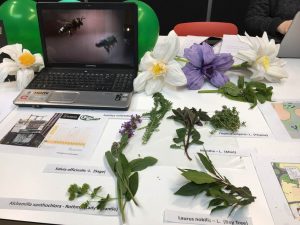
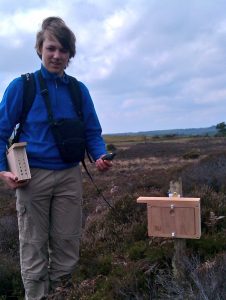
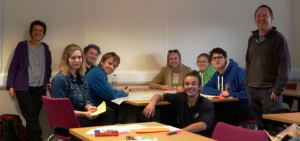





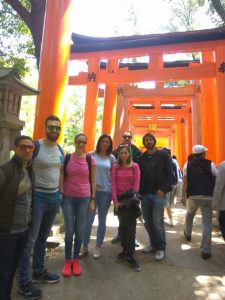
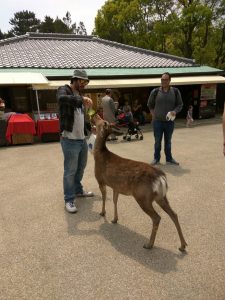
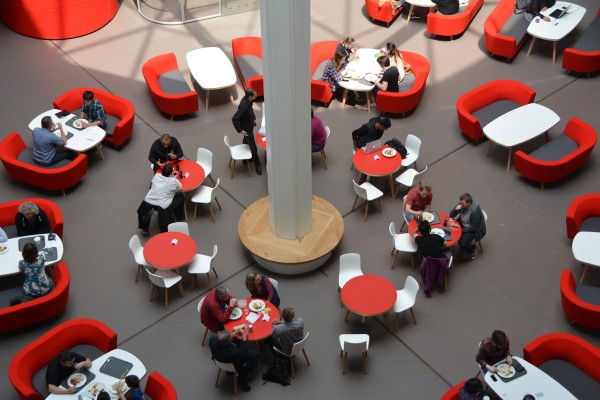

 The
The  NERC is inviting applications from across the NERC science remit to join its key scientific advisory board, the Science Board (SB). NERC is seeking to recruit for up to three vacancies, to commence appointment in October 2017. SB is the key source of advice to NERC Council on science related issues.
NERC is inviting applications from across the NERC science remit to join its key scientific advisory board, the Science Board (SB). NERC is seeking to recruit for up to three vacancies, to commence appointment in October 2017. SB is the key source of advice to NERC Council on science related issues. New world order: Science, technology & trade
New world order: Science, technology & trade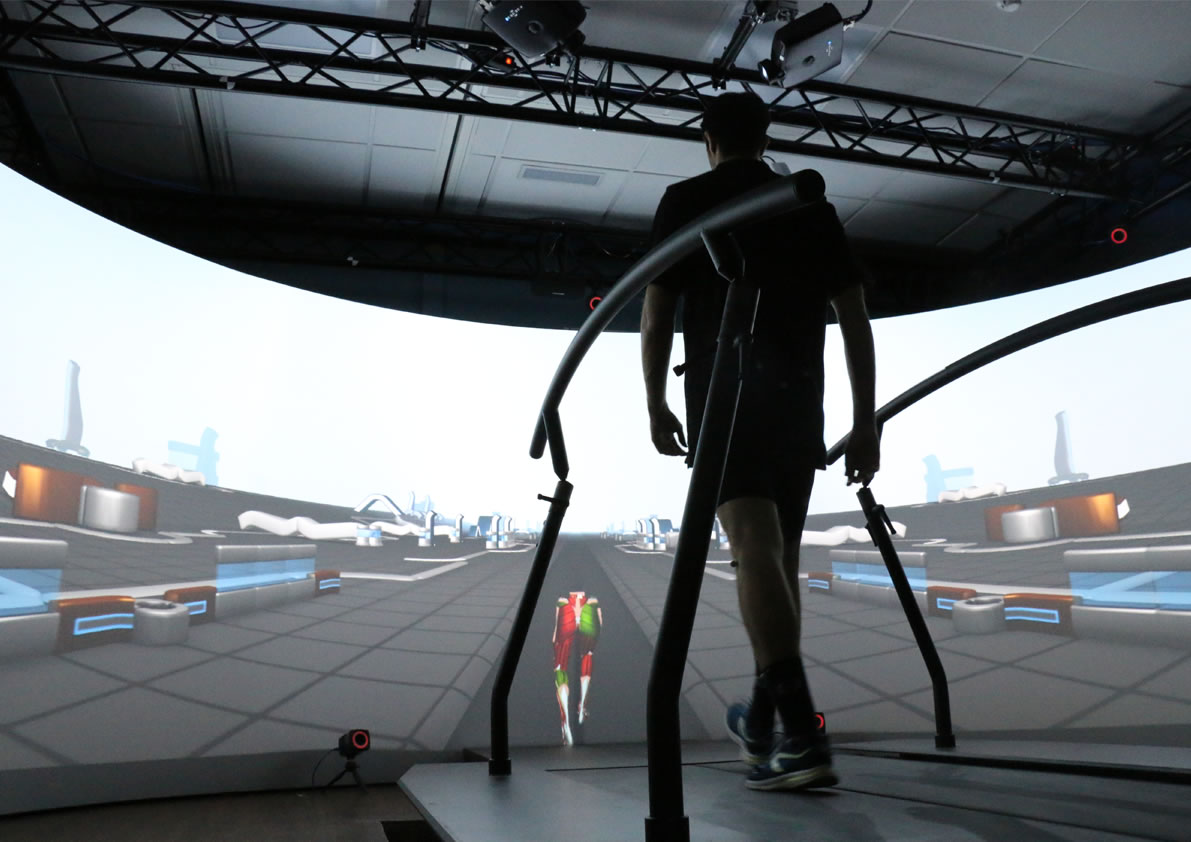 The ORI Gait Lab
The ORI Gait Lab

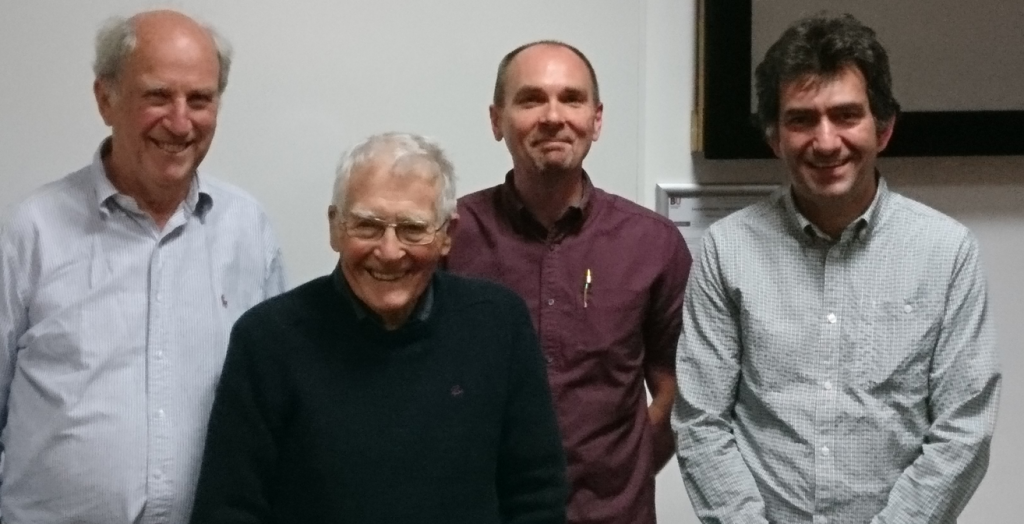











 UK Turing Scheme: My student mobility programme in Nepal
UK Turing Scheme: My student mobility programme in Nepal Bournemouth University psychologists publish new book
Bournemouth University psychologists publish new book Connecting Research with Practice: FoodMAPP Secondment in Austria and France
Connecting Research with Practice: FoodMAPP Secondment in Austria and France Health promotion paper read 8,000 times
Health promotion paper read 8,000 times The Beautiful Work Challenge: On Birth
The Beautiful Work Challenge: On Birth MSCA Postdoctoral Fellowships 2025 Call
MSCA Postdoctoral Fellowships 2025 Call ERC Advanced Grant 2025 Webinar
ERC Advanced Grant 2025 Webinar Horizon Europe Work Programme 2025 Published
Horizon Europe Work Programme 2025 Published Horizon Europe 2025 Work Programme pre-Published
Horizon Europe 2025 Work Programme pre-Published Update on UKRO services
Update on UKRO services European research project exploring use of ‘virtual twins’ to better manage metabolic associated fatty liver disease
European research project exploring use of ‘virtual twins’ to better manage metabolic associated fatty liver disease